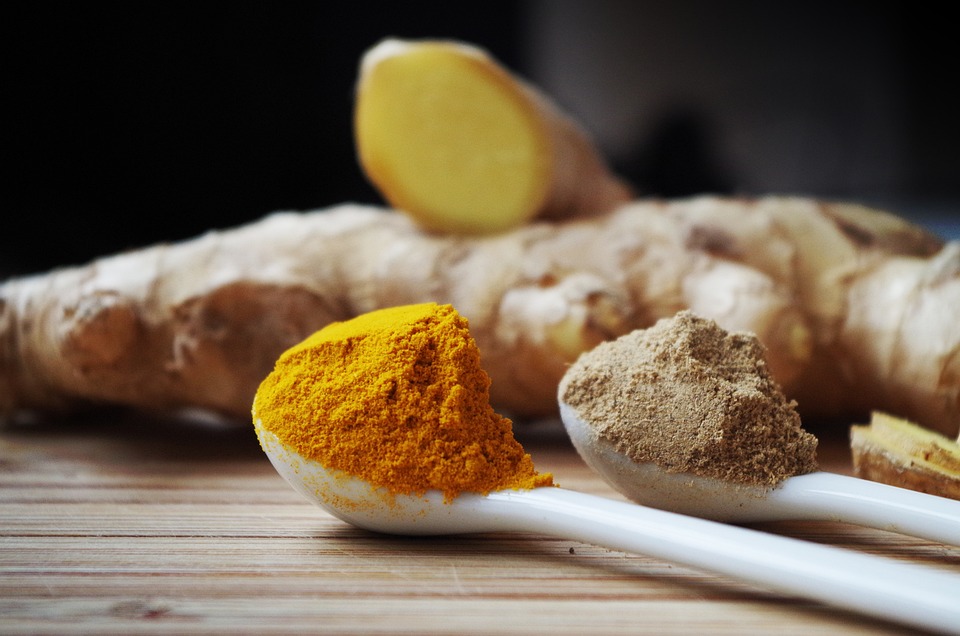
Cinnamon is an incredibly strong seasoning that has been used as medicine all over the world for millennia. Cinnamon is used daily in many different cultures due to its multiple health benefits and its yummy, warm flavor, as well as its easy incorporation into numerous recipes.
Surprisingly, a study of the 26 most frequented herbs and spices worldwide has revealed that this particular spice has the highest antioxidant properties out of all the tested ones. The list of health advantages of this item is very extensive, containing antibacterial, antifungal, and anti-diabetic characteristics.
Cinnamon is produced by grinding the bark of the Cinnamomum verum (or Cinnamomum zeylanicum) tree. This bark consists of multiple different chemicals that are responsible for its many benefits, such as cinnamaldehyde, cinnamic acid, and cinnamate.
What are the benefits of incorporating this into your diet and how can you do it? Let’s take a more detailed examination of what is essential to be aware of concerning this strong flavoring.
Types
So far, around 250 different varieties of cinnamon have been found growing across the globe.
Nevertheless, the two types of cinnamon utilized currently are Ceylon cinnamon, which is occasionally classified as genuine or authentic cinnamon, and cassia cinnamon, which is more easily accessible and more commonly utilized.
Ceylon and cassia originate from two distinct, yet linked, trees. Ceylon originates from trees cultivated in regions such as Sri Lanka and Thailand that are rare, thus resulting in Ceylon being pricier and more challenging to locate in stores.
In contrast, the Saigon or Chinese kind of cinnamon which is also known as cassia cinnamon originates from China and is less costly in comparison and can be found more easily.
Until now, Cassia has been looked into more intensely than Ceylon, but researchers are beginning to believe Ceylon may actually have more potential health benefits than Cassia.
Ceylon has lower levels of coumarin compared to cassia, which can be potentially hazardous to the liver when ingested in large quantities. This is why Ceylon is a preferable choice for creating cinnamon extracts that have concentrated amounts of spice.
People claim that Ceylon has a more delicate, citrus-like flavor compared to cassia, which is thought to be heartier and more pungent. In a majority of cases, either of the two ingredients can be utilized in cooking recipes.
The two of them possess a distinctive, pungent flavor and aroma because of the cinnamaldehyde component. Ceylon cinnamon powder is thought to be of greater strength and provides a great deal of health benefits, as compared to the other type.
In addition to these two common types of cinnamon, some of the other varieties available include:
- Indonesian cinnamon
- Vietnamese cinnamon
- Indian cinnamon
- Malabar cinnamon
Nutrition Facts
A small amount of cinnamon can make a big difference, and its antioxidant contents are the reason why it is beneficial to add to your eating habits. As little as half a teaspoon of intake per day can be beneficial for glucose levels in the blood, gastrointestinal functioning, body’s natural defenses, and more.
Nonetheless, higher levels of intake can also be highly advantageous in lowering the chances of developing heart disease and diminishing the probability of getting diabetes, cancer, and diseases related to the deterioration of the nervous system.
Cinnamon is an ingredient high in several vital nutrients, among them fiber, manganese, and several vitamins and minerals.
One tablespoon (about eight grams) of ground cinnamon contains approximately:
- 19 calories
- 6.2 grams carbohydrates
- 0.3 grams protein
- 0.2 grams fat
- 4.1 grams dietary fiber
- 1.4 milligrams manganese (68 percent DV)
- 77.7 milligrams calcium (8 percent DV)
- 0.6 milligrams iron (4 percent DV)
- 2.4 micrograms vitamin K (3 percent DV)
In addition to the previously mentioned nutrients, this popular seasoning also holds a negligible amount of Vitamin E, Niacin, Vitamin B6, Magnesium, Potassium, Zinc and Copper.
How to Use
It has been determined by researchers that it is possible to gain health advantages from cinnamon in its raw bark form, oils, powdered form (which is powdered bark) or extract form where the individual phenolic compounds, flavonoids, and antioxidants have been separated. Compounds within this spice produce impressive health-promoting qualities, such as antioxidant and anti-inflammatory protection, diabetes management, anti-microbial activity, improved immune system function, and the potential to fight cancer and protect against heart disease.
Cassia cinnamon can usually be located in the section of grocery stores where spices are sold. Seek out organic Ceylon cinnamon powder and cinnamon essential oil in places like health food stores or ethnic markets if you want to obtain the most advantages from cinnamon.
Look at the label to figure out what kind you’re going to buy and bear in mind that if the type isn’t specified, it’s likely to be the less costly and more popular cassia variety.
You can buy cinnamon sticks and use a grater to process freshly grated cinnamon. You might also experiment with utilizing entire twigs (also referred to as feather pens) to blend liquids such as mulled wine and give them a unique taste.
You can also add the spice to boiling water to gain the multitude of benefits associated with cinnamon tea.
In order to decide which kind of stick you are buying, inspect the surface. Ceylon cinnamon usually has a thinner, more fragile outer bark compared to that of cassia.
Using ground cinnamon is also a great way to add a bit of sweetness to oatmeal, yogurt, or other baked treats. You can add some dimension and pleasantness to savory dishes as well, thus why not attempt it in your ensuing container of soup or stew?
Apart from incorporating fresh or powdered cinnamon into your favorite dishes, there are many other forms of cinnamon that can be used, such as supplements. For instance, cinnamon tablets, cinnamon essential oil, or capsules are all options that offer a speedy and concentrated quantity of the spice.
How Cinnamon Benefits Your Health
1. Powerful Medicinal Properties
Cinnamon is made from the bark of the cinnamomum tree. This bark is stripped down and allowed to dry. It transforms into the snaky twists which are generally recognized as cinnamon sticks. In history this was thought of as a luxuriant and prized cuisine that was only fitting for kings and queens.
- Ceylon cinnamon or true cinnamon
- Cassia cinnamon is more commonly found in supermarkets and restaurants.
Cinnamaldehyde is an oil that leads to the fragrance and flavor of cinnamon. The active ingredient in cinnamon is the source of many of its beneficial effects on health.
2. Blood Sugar Control
Research has demonstrated that cinnamon has helpful characteristics which can be beneficial for people with insulin resistance. Insulin plays an important role in the body’s metabolism and in transporting sugars from the blood. It is a necessary hormone.
This is why a lot of people diagnosed with type 2 diabetes add cinnamon to their diet in order to balance out the differences in their blood sugar levels. Sadly, all types of cinnamon don’t have the same health advantages.
Research revealed that Ceylon cinnamon was more capable of managing blood sugar compared to cassia cinnamon. It has been shown that cinnamaldehyde has the most powerful effect on controlling blood sugar levels, especially when derived from Ceylon cinnamon.
In order to manage blood sugar levels, it is usually recommended to consume 2-4 grams of cinnamon daily.
3. Diabetes Protection
Cinnamon has a positive effect on how quickly digested food is expelled from the stomach, known as gastric emptying. The consequence of this is that blood sugar levels do not suddenly spike after eating, which helps insulin in the body work better.
Researchers at the University of Georgia found that cinnamon can lessen the tissue harm and swelling connected with high blood sugar levels.
When blood glucose levels are elevated, the glucose binds to proteins to form advanced glycation end products (AGEs). AGEs can have a detrimental effect, as they can lead to inflammation and tissue harm related to getting older and instances of metabolic dysfunction. In the same study, it was found that cinnamon had a significant connection to preventing the development of AGEs because of its very high antioxidant levels.
What does all of this mean? Essentially, using cinnamon can help protect you from getting diabetes.
4. Weight Loss Help
I would like to clear up a misconception that is unfortunately becoming more accepted – there is no “quick fix” for weight loss and consuming cinnamon will not cause your body fat to disappear.
The most successful approach to dropping pounds is to partake in reasonable, efficient physical activity and transition to a balanced diet made up of foods that are beneficial and not overly processed.
It’s really that simple. That said, cinnamon can help.
No research currently exists to support cinnamon as a weight loss aid, but it has been observed to help regulate blood sugar, leading to less glucose entering the bloodstream and consequently better control of the appetite.
5. Irritable Bowel Syndrome Relief
Cinnamon can help with IBS by easing the feeling of being bloated in the stomach and aiding your digestive system.
Cinnamon is effective in treating IBS by eliminating bacteria and treating infections in the gastrointestinal tract, improving your digestion. A great suggestion is to consume 2 cups of cinnamon tea each day to reduce any discomfort caused by Irritable Bowel Syndrome.
6. Better Brain Function
Researchers at Wheeling Jesuit University observed a group of participants doing several mental activities while they had no gum, regular gum, and flavored gum that consisted of cinnamon, peppermint, and jasmine. The cinnamon group had the best scores in the following areas:
- The speed of a visual-motor response
- The speed of cognitive processing
- Attention scores
Think about what kind of impact having a greater quantity of excellent cinnamon could have if eating a negligible amount of it, such as in a piece of chewing gum, had such a difference.
7. Antioxidants Boost
Antioxidants work to neutralize the harmful effects of free radicals by combating the oxidative modifications they can cause in the body. Cinnamon contains a high amount of antioxidants, such as polyphenols, which makes it one of the most antioxidant-packed foods on the planet.
This research indicated that cinnamon had the highest level of antioxidative qualities when pitted against 26 other spices, surpassing even the famed superfoods garlic and oregano.
This is fantastic news because foods high in antioxidants are beneficial for your overall health due to their capacity to restore cells that have been weakened by a variety of things including aging.
Can You Have Too Much?
Minimizing the amount of cinnamon that you consume can help to prevent any unintended side effects, making it generally safe to have.
Studies show that the overuse of certain varieties of cinnamon, specifically cassia cinnamon, can lead to negative side effects. The existence of coumarin, a compound that can cause liver harm in ample quantities, is the cause of this.
Ceylon cinnamon only has a barely detectable amount of coumarin, but cassia cinnamon has notably more. Too much of the coumarin generally found in cassia cinnamon has been tied to other health issues, including a heightened potential for the development of cancer.
Cinnamon could possibly reduce blood sugar levels, particularly when taken in conjunction with other drugs that also lower blood glucose. This is due to its anti-diabetic properties. In some folks, the ingestion of cinnamon has been linked with respiratory problems as well as soreness in the mouth.
This spice is considered to be safe and non-allergenic, particularly when taken at its usual dose. Occasionally, it is possible to administer the proper dosage of either extract supplements or cinnamon essential oil, which could antagonize medications or aggravate pre-existing medical conditions.
Cinnamon can be hazardous in high quantities, particularly for those who are expecting or nursing, have diabetes, are afflicted with liver issues, or have recently undergone surgery. It is important that you follow the instructions for the use of cinnamon and other herbal extracts and not take more than the recommended dosage without consulting with your doctor to avoid any potential issues.
Cinnamon is such a pleasing spice. The aroma of it instantly brings thoughts of warmth and comfort, and it serves as a reminder of the holidays for some people. Cinnamon has huge advantages when it comes to your health.














